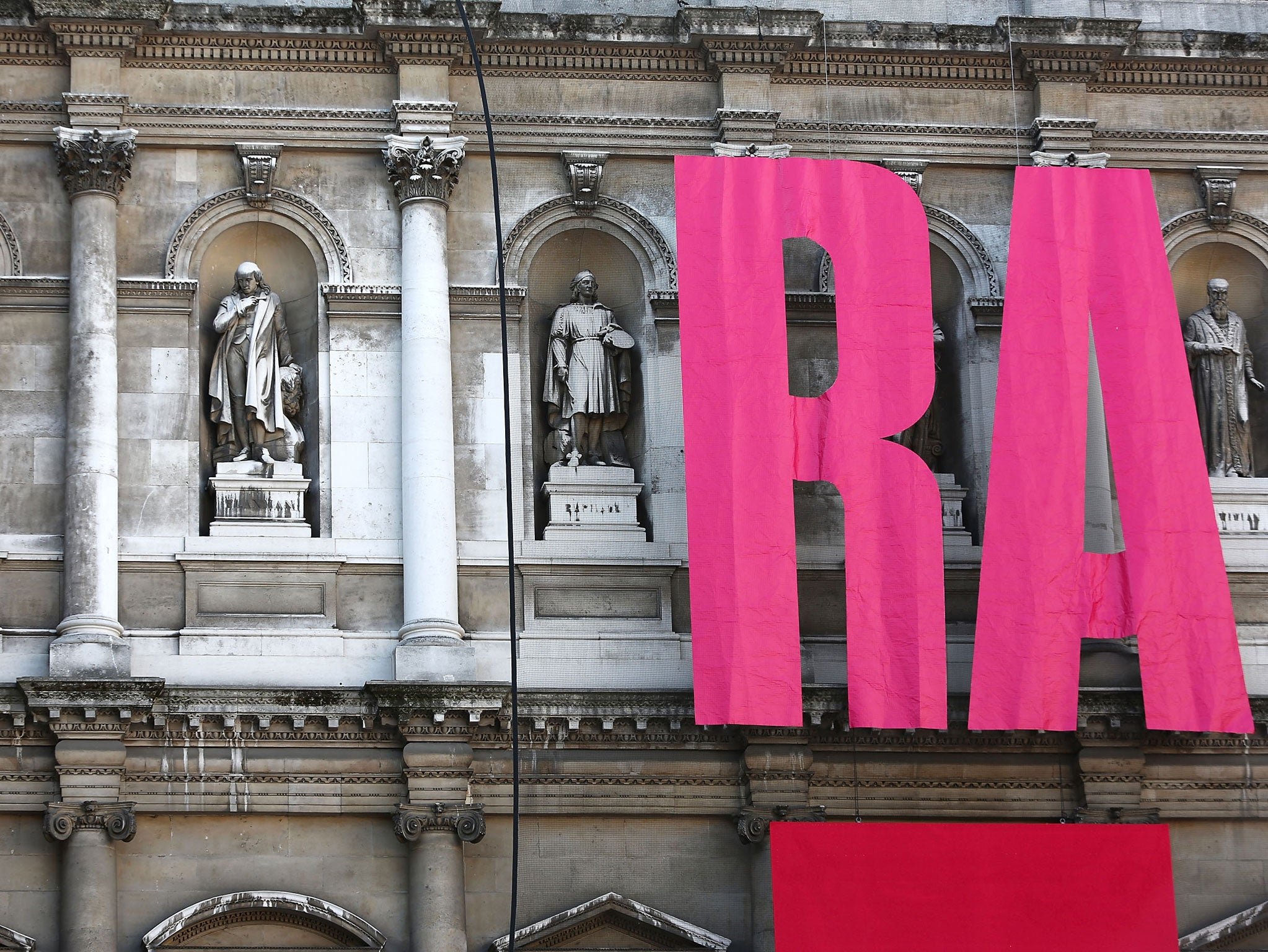If galleries want to be friends, they'll have to come with benefits
Plus: The curious incident of Luke Treadaway, the non-appearing Best Actor and I'm not a 'stakeholder' in this ugly use of English


Not much has been made of a little ceremony at the Royal Academy the other day. It was the "topping out" of the Keeper's House project. Perhaps it has been largely ignored because, unlike the British Museum's announcement in the same week, it isn't about a new gallery. No, the Keeper's House has been turned into a new building for Friends of the Royal Academy.
I'm rather keen on Friends. I am one myself, both of the Royal Academy and the Tate. Joining helps the institutions financially, but let's not overdo the altruism. The point is it gets one a lot of perks, free passes to exhibitions, talks, magazines and most importantly a Friends' room. I can never understand why institutions don't have them. No names, but wouldn't the National Gallery make more money and more friends by having a Friends' organisation and room?
Tate Modern's room overlooks the river rather splendidly, as does the South Bank Centre's. Admittedly, at Tate Britain the Friends room is more akin to the Black Hole of Calcutta. But, at the Royal Academy, you have your own room and eating area in Piccadilly. Outside London there are also many fine examples, with places like the Lowry in Salford and Sage in Gateshead having VIP rooms for the use of Friends.
The new building at the Royal Academy, a £6.5m project by architect David Chipperfield, which opens in September, will double the size of the present Friends' quarters, with bar, restaurant, walled garden and wi-fi, to make it virtually a private club in the heart of London's West End. Setting it apart from other arts institutions in the country, it will be open from seven in the morning to late at night.
The speeches made at the topping-out ceremony were interesting too. Royal Academy president Christopher Le Brun said: "I want the Friends to be happy. I'm upset when I see queues for the loo." The president of the Royal Academy talking about queues for the loo? He has clearly been chatting to visitors, and realises that other factors come into a day's engagement with art.
And then there was renowned restaurateur Oliver Peyton, who will be in charge of the catering. He said that he would like to see the Royal Academy go further and open the galleries at night too. A man after my own heart. It is, of course, madness not to have art galleries open when most people can use them.
But the Royal Academy is on the right lines. It recognises that arts attenders want to feel part of a club, want to have a club at their favourite institution, want privileges, want to turn seeing paintings into an enjoyable and relaxing day out. Tate Britain too is soon to get rid of its Black Hole of Calcutta, and replace it with a spectacular space with views over the gallery's Rotunda. Everybody's at it. Galleries are realising there is more to seeing art than simply seeing art. We want to feel we belong, have a sense of ownership, and be guaranteed a comfortable and pleasurable experience.
There will come a time when we can say: "I'll meet you at my club, we can have drinks and lunch and afterwards look at some paintings." And it's not philistine to think that a long-overdue development.
The curious incident of the non-appearing Best Actor
Sometimes, theatres are a little less than honest with consumers. I was delighted to see Luke Treadaway win the Best Actor prize at the Olivier Awards for his performance in the National Theatre's The Curious Incident of the Dog in the Night-Time. But I wonder why the website for the Apollo theatre, where the show is on, does not mention that Luke does not appear on Mondays or Tuesdays. I know theatres like to talk in terms of companies, but we theatregoers do like to know if the actor of the year is actually appearing when we book our tickets. I hope that the estimable head of the National, Sir Nicholas Hytner, will have a word with the West End theatre to which it has transferred, and ask them to be a little more transparent with their audiences.
I'm not a 'stakeholder' in this ugly use of English
Whatever the rights or wrongs of Culture Secretary Maria Miller's call for the arts to show off the economic case for funding, she followed it with a definite linguistic crime. The ever-irritating, self-congratulatory, weekly news round-up from the Conservative Culture and Creative Industries Team announces that Ms Miller made her speech "to arts stake-holders." What an ugly phrase, and a worrying one too. The arts consists of artists, administrators and audiences. Enough with the stakeholders.

Join our commenting forum
Join thought-provoking conversations, follow other Independent readers and see their replies